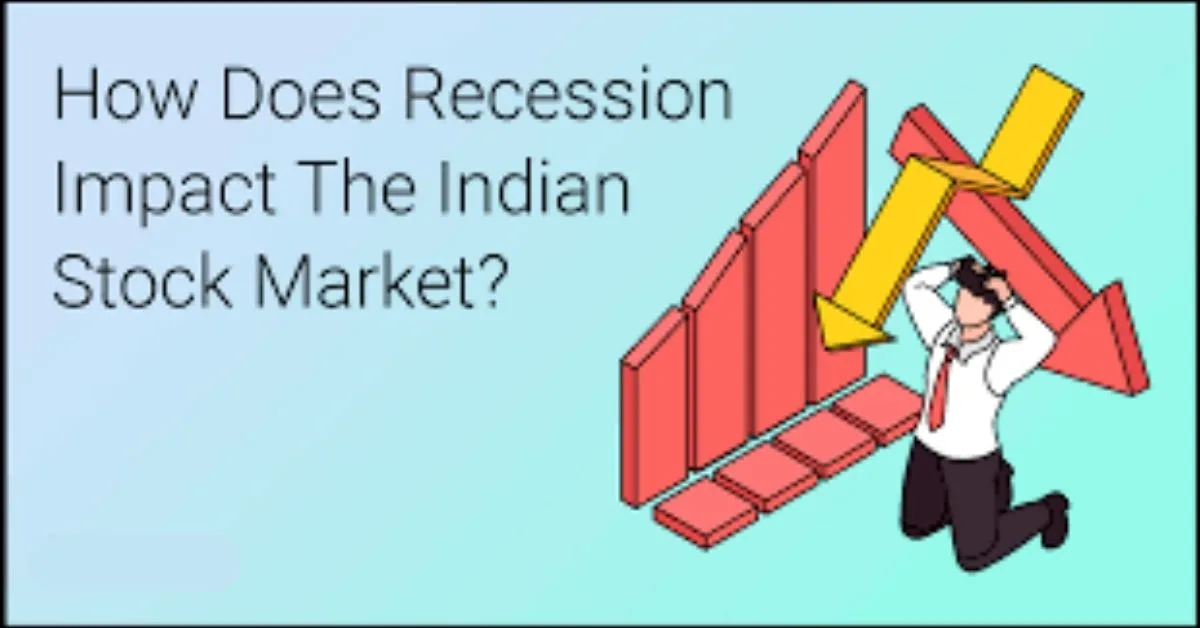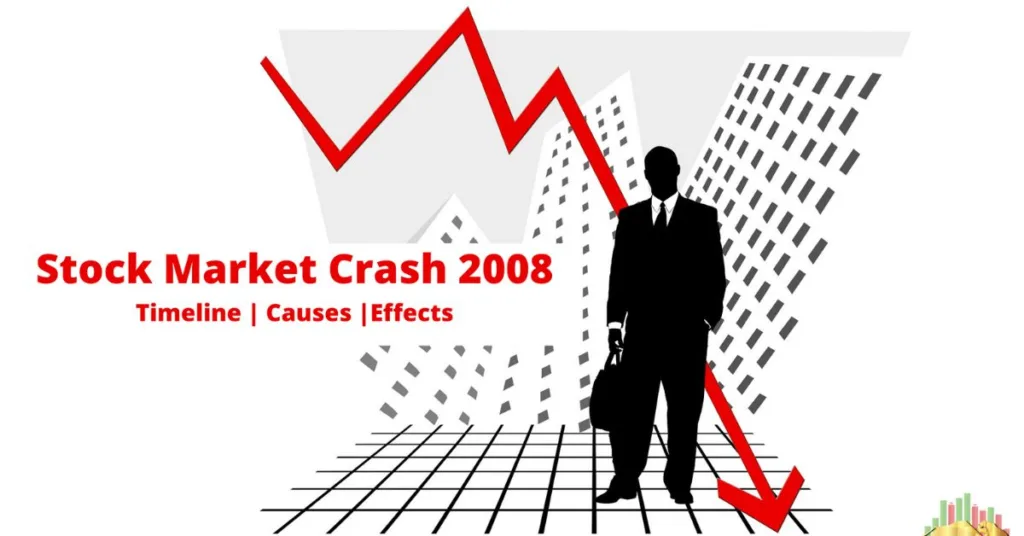The Stock Market Is Volatile: Recognising the Recession Risk

The stock market is volatile, and there is a risk of a recession
Introduction
The stock market is a dynamic environment that is marked by volatility and unpredictability. Potential hazards that could affect their assets are something that investors are continuously on the watch for. The likelihood of a recession is one such risk. In this article, we’ll examine the idea of stock market volatility, consider the elements that raise the possibility of a recession, and offer advice on how investors might survive these tumultuous times.
1. Comprehending Volatility in the Stock Market
The meaning of volatility
The rapid and severe price changes that affect stocks and other financial instruments are referred to as stock market volatility. It is a gauge of the hazard and risk involved in making market investments. Investor sentiment, geopolitical events, and economic conditions are just a few of the variables that frequently influence volatility.
Factors Affecting Stock Market Volatility
The health of the economy, including GDP growth, inflation rates, and employment data, can have an impact on market volatility. – Economic indicators: The health of the economy can have an impact on market volatility.
– Investor sentiment: Market volatility may be influenced by the general psychology of investors, which includes greed and fear.
– Geopolitical events: The stock market may be significantly impacted by political unrest, trade conflicts, and geopolitical tensions.
– Corporate earnings: Stock volatility may be influenced by company-specific elements such as quarterly earnings releases and corporate scandals.
2. The Recession Risk
Understanding Recessions
A recession is a prolonged period of weak economic growth that is characterised by lower GDP growth, higher unemployment rates, and lower consumer expenditure. Stock prices can drop and investor concern can result from recessions, which can have a significant effect on the stock market.
The Effect of Economic Indicators on the Stock Market
– Insights regarding the possibility of a recession and its potential effects on the stock market can be gained from a number of economic indicators.
– These signs consist of GDP growth: Two consecutive quarters of declining or negative GDP growth are frequently regarded as signs of a recession.
– Increased unemployment rates can be an indication of an economy in decline and have a detrimental effect on investor confidence.
– Consumer spending: A sharp decline in consumer spending may have a negative impact on business profits and increase market volatility.
Examples of past recessions and how they affected the stock market
There have been a number of significant recessions that have affected the stock market throughout history. For instance:
The Great Recession (2007–2009): A severe recession and a dramatic decrease in stock prices were caused by the subprime mortgage crisis and the demise of Lehman Brothers, which set off a worldwide financial crisis.

Dotcom Bubble, 2000–2002: A substantial market decline, especially affecting technology equities, was caused by the implosion of the dotcom bubble.
– Black Monday (1987): The 1987 stock market crisis caused the Dow Jones Industrial Average to lose 22.6% of its value in a single day.
3. Recognising Red Flags and Leading Economic Indicators
Investors frequently look for leading economic indicators, which might offer early signs of an economic downturn, to estimate the probability of a recession. Some essential leading signs are:
– Yield curve inversion: When short-term interest rates are higher than long-term interest rates, it is frequently thought that a recession is about to begin.
– Manufacturing and industrial activity: A decline in industrial production or manufacturing output may be a sign that the economy is slowing down.
– Consumer sentiment: A decline in consumer expenditure and confidence could portend an impending economic slowdown.
Market Trends and Analysis
Investors can assess the likelihood of a recession by keeping an eye on market patterns and analyses. Chart patterns and trend indicators used in technical analysis can shed light on market mood and future price reversals.
Geopolitical factors and government policies
The chance of a recession can be impacted by government actions, such as modifications to monetary and fiscal rules. Additionally, geopolitical variables, such as trade conflicts or geopolitical tensions, can influence market volatility and lead to economic instability.

.4. Risk-reduction Techniques Diversification
Spreading investments over several asset classes, industries, and geographical areas is a risk management method known as diversification. Investors can lessen the risk associated with holding a single stock or market sector by diversifying their portfolios, which will lessen the effects of a future recession.
Asset Management
The distribution of investments among various asset classes, such as stocks, bonds, and cash equivalents, is referred to as asset allocation. Based on their investment objectives and risk tolerance, investors can attain a desired level of risk and return with the aid of a well-balanced asset allocation plan.
investing in defence
Focusing on firms and industries that are less susceptible to economic downturns is a component of defensive investment. Businesses engaged in key sectors like healthcare or consumer staples frequently function more steadily throughout recessions.
5. Dealing with the Recession
Investments with a Long-Term View
Keeping a long-term perspective is crucial during a recession. Markets have a tendency to bounce back over time, and holding onto your investments might help you profit when the economy picks up.
Average Cost in Dollars
Regardless of market conditions, dollar-cost averaging is an investment technique that entails consistently investing a set sum of money at predetermined periods. By purchasing more shares when prices are low and fewer shares when prices are high, this strategy helps lessen the effects of market volatility.
Opportunities to Be Seen During a Recession
Smart investors may find chances during recessions. When the economy rebounds, finding cheap stocks or industries with growth potential might result in large rewards. Investors can make wise judgements by doing thorough study and getting assistance from financial experts.
6. Conclusion
Because of the stock market’s inherent volatility, investors are constantly worried about the possibility of a recession. Investors can navigate through difficult times by understanding the variables that cause stock market volatility and being alert of warning flags. Investors can reduce risks and even profit from opportunities during a recession by putting methods like diversification, asset allocation, and defensive investment into practise.
.
FAQs
1. How frequently do recessions happen?
– Periodic recessions are cyclical occurrences. Although the intervals between recessions might vary, historically they have happened every 7 to 10 years.
2. Is the stock market immune to recessions entirely?
– While it is difficult for the stock market to fully avoid recessions, some industries or businesses may be less impacted or
perform superior to others during a downturn in the economy. Recessions can have a negative effect on investment portfolios, but they can be lessened through defensive investing and cautious stock selection.
3. What should I do if I believe a recession is on the horizon?
– It is critical to assess your investment portfolio and take your asset allocation and diversification plan into consideration if you believe a recession is approaching. By seeking advice from a financial advisor, you can get useful information that is suited to your unique financial objectives and risk tolerance.
4. The average duration of recessions.
– Recessions can last for a variety of times. While some recessions may last a few quarters, others might persist for several years. The length may vary depending on the depth of the recession and how well government initiatives stimulate economic recovery.
5. During a recession, are there any secure investments?
– During a recession, no investment is fully risk-free. However, investments in protective industries like healthcare, utilities, and consumer staples typically fare better during recessions. Furthermore, amid erratic market situations, high-quality bonds and cash equivalents are regarded as safer alternatives.
6. If there is a recession, should I cease investing?
– In general, it’s not a good idea to quit investing during a downturn. Instead, think about changing your investment approach and concentrating on long-term objectives. When the market is down, there may be opportunities to buy equities at a bargain, which could result in larger returns when it is up.










